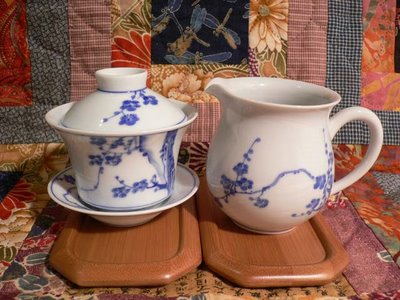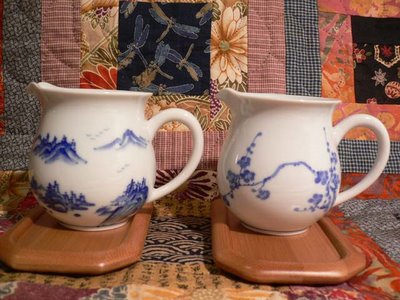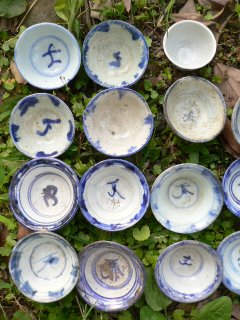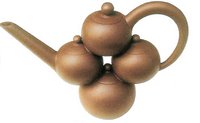 Teaparker has followed up with 2 more articles (part 3 and part 4) about the pitfalls in buying puerh.
Teaparker has followed up with 2 more articles (part 3 and part 4) about the pitfalls in buying puerh. Let me translate, summarize and comment his newest recommendations:
- Don't even trust the media, be they general or specialized. Some news are so hyped that even independent experts sheepishly rally behind them to avoid becoming outcasts.
- Tea magazines are made by the industry, not by the consumers. (My note: this is plain to see in Taiwan: they use almost the same pictures for ads as for the articles. One add usually also helps pay an article in the magazine I have.)
- The tea retailers typically talk up their teas and talk down the ones sold elsewhere. (Teaparker sometimes also likes to state the obvious!)
- The tea experts are too seldom truly independent. Teaparker urges them be more critical and less influenced by the powerful tea merchants.
In the fourth article, Teaparker discusses what can be done against the "asymmetric information" in the tea business.
But let me first explain how the asymmetric information theory works in the tea business. The producers and the big merchants have all the information about their teas (what leafs, production technique, exact date...) but the consumers are pretty much in the dark about it. All they know is what they're being told. According to economic theory, this situation typically creates markets where poor product offerings dominate (a good example is the used car business), or even a collapse of the market (the .com bubble comes to mind). To fight against that problem, the economists recommend that the information be better shared with consumers. (I think this is exactly what my blog intended to do! I had no idea my behavior was Nobel prize material!)
 So, Teaparker thinks that the first thing the consumer needs to learn about puerh is what is 'wild' puerh. There are 3 categories of puerh:
So, Teaparker thinks that the first thing the consumer needs to learn about puerh is what is 'wild' puerh. There are 3 categories of puerh:1. Wild grown trees that have never been cultivated by man.
2. Old big plantation trees that have been abandoned by man.
3. Plantation trees planted and cultivated by man.
A consumer needs to understand what is wild to be able to judge by himself.
Also, people speak a lot about storage, be it dry, humid or clean. But Teaparker says storage is less important than the intrinsic tea quality. Puerh tea should have a pure, not a mixed, taste.
At the end, Teaparker issues his often repeated warning: only quality puerh is worth storing and maturing. Currently, the asymmetric information in the market has caused lots of people, merchants to store (low quality) puerh in hope they can sell it later at much higher prices. This may lead to a future collapse in the market of old puerh. This situation also creates opportunities for independent tea critiques to help educate consumers about puerh.
Well, at the end of the artile he should have a link to purchase his puerh book (in Chinese)! It's pretty clear that Teaparker is trying to become that independent expert. However, his job is tougher than Robert Parker and that of independent wine experts. All they have to do is to come up with a list of likes and dislikes. In tea, there are few labels and they are often copied. So the ultimate goal is to pass enough information so that the consumer can become his own expert.
































